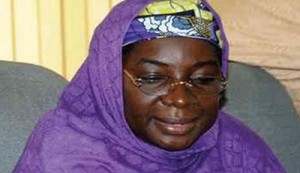
Minister of Education, Prof. Ruqayyatu Rufa’i, on Thursday said the Federal Government was working to address the problem of the high number of out-of-school children.
The United Nations Educational, Scientific and Cultural Organization report ranked Nigeria as the country with the highest number of out-of-school-children in the world, with 10.5 million of the 57 million children out of school in 2011.

Rufai, who spoke in Abuja at the Dissemination of the World Bank Skills Note for Nigeria on Thursday, said 125 day and boarding schools were being constructed under the Almajiri Education Programme. Eighty of these, she said, had been completed.
“A similar programme is targeting girl’s education,” she said.
According to her, comprehensive attention is being given to the development of new infrastructure and rehabilitation of existing ones to create access for additional pupils.
She revealed that government had earmarked an initial N15bn for the rehabilitation of laboratories in federal and state polytechnics, while another N109.4bn had been provided for universities, polytechnics and colleges of education in five phases under the High Impact Initiative of the Tertiary Education Trust Fund.
“Fifty-eight federal and state colleges of education are benefiting from the construction of micro-teaching laboratories at a cost of N11.6bn. This is to enhance the application of modern technology in the teaching-learning process,” the minister added.
According to the UNESCO report, the amount of aid to basic education which Nigeria received in 2011 was 28 per cent lower than it received in 2010. Nigeria is in the top 10 countries for the largest decrease in aid from 2010-2011.
In 2012, the UNESCO Institute for Statistics estimated that 61 million children of primary school age were out of school in 2010.
But in 2013, UIS revised its estimate for 2010 to 59 million children out-of-school due to available new national data.




